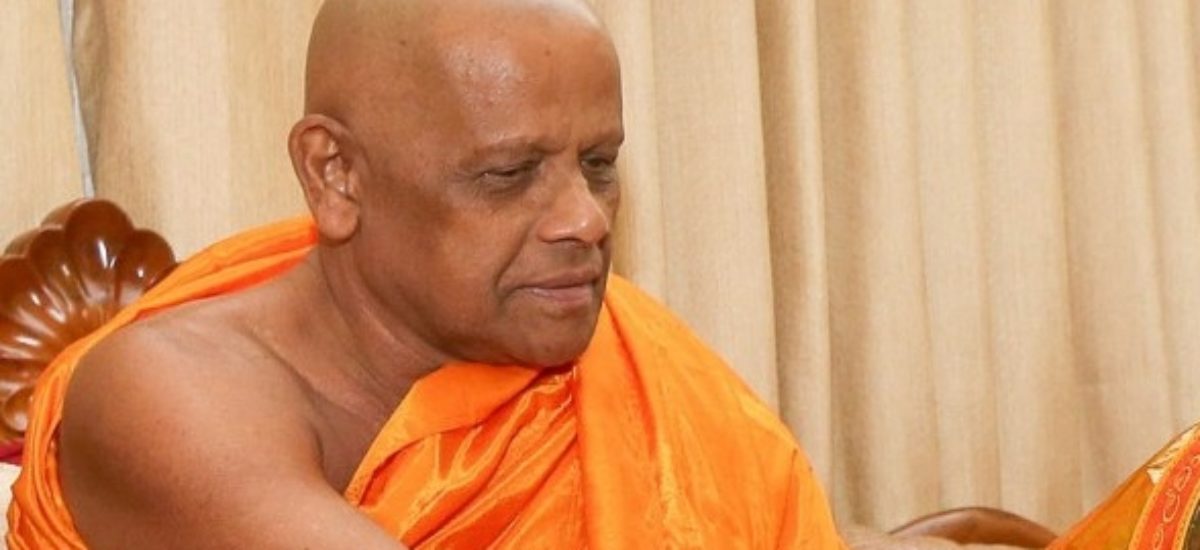Featured image courtesy Sri Lanka Guardian
“Just as a blade of (kusa) grass wrongly grasped cuts one’s hand, so does monkhood wrongly practiced drags one to hell.”
Dhammapada – Niraya Vagga
In the run up to the 2014 Aluthgama riot, the rabble-rousing monk Galagoda Aththe Gnanasara coined the term Aba Saranai, a battle-cry of hate totally at variance with the teachings of the Buddha.
Now the most venerable chief prelate of the Asgiriya Chapter has taken the concept of Aba Saranai to its logical conclusion. During a recent sermon, he advocates the boycotting of Muslim owned businesses, disseminates fake news about a doctor in Matale destroying hundreds of thousands of Sinhala-Buddhist babies, decries law and order, and indirectly endorses stoning to death those Lankan Muslims he considers to be traitors.
The only other places where a religious leader might be able to get away with such a hate-filled statement are theocracies like Saudi Arabia and Iran. In any civilised nation, a statement of this sort would give rise to a chorus of condemnations. The maker of such a statement would be compelled to pay the price of public opprobrium, at the least. In Sri Lanka, apart from Mangala Samaraweera, not a single politician has dared to emit a word of condemnation. That silence opens far more doors to violent, intolerant extremism of every variety than a million words.
Some months ago, a deputy of the same order openly asked Gotabhaya Rajapaksa to rebuild the country, even by becoming a Hitler.
The statements, taken together, are indicative of a deep malaise affecting Buddhism in Sri Lanka. Given the dominant role played by Buddhist monks in Lankan life, this malaise cannot but have a devastating effect on polity and society. The teachings of the Buddha have been highjacked and perverted by a group of lay and ordained extremists who are depicting intolerance as the highest good and violence as a justifiable means. If they are allowed a free pass, Sri Lanka will soon find herself suffocating in the grip of a Saffron-Salafism. We need to speak up, now.

